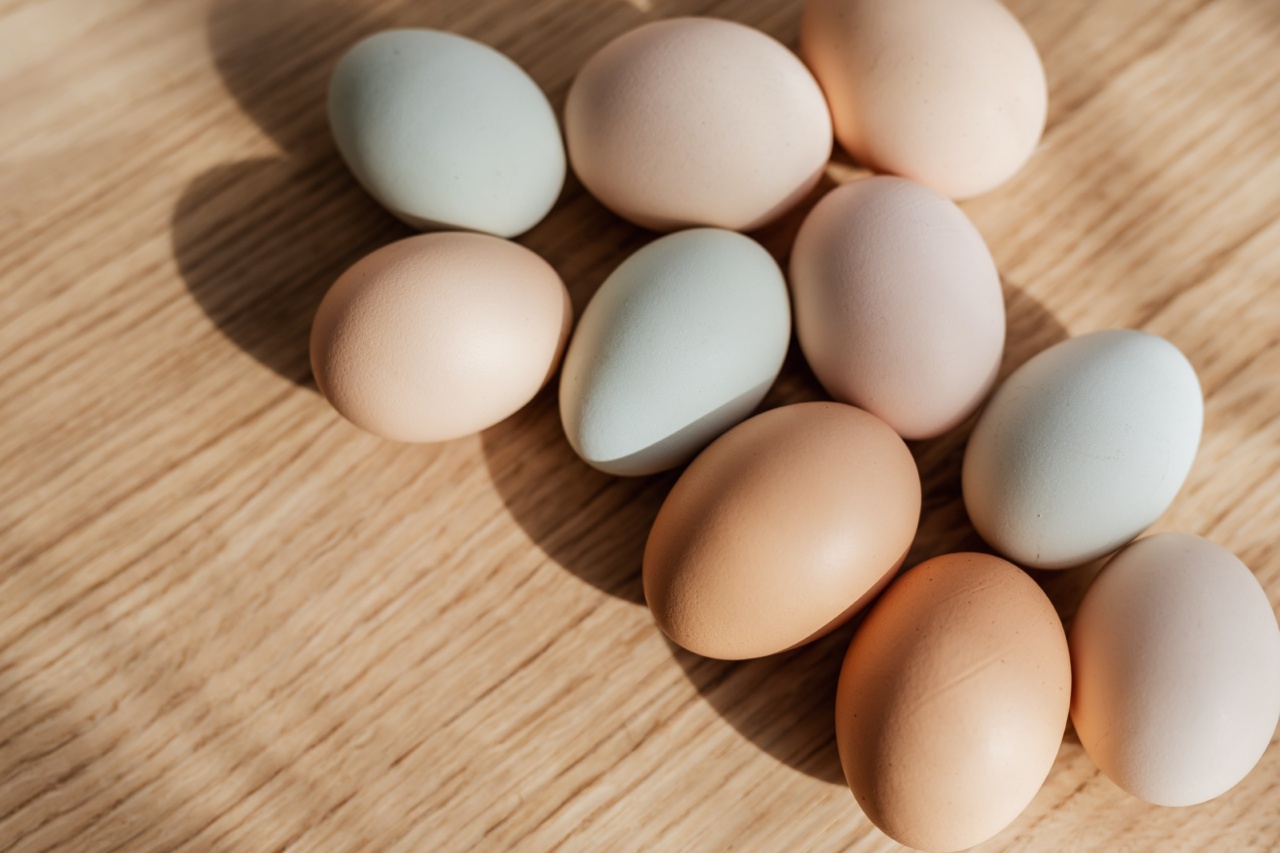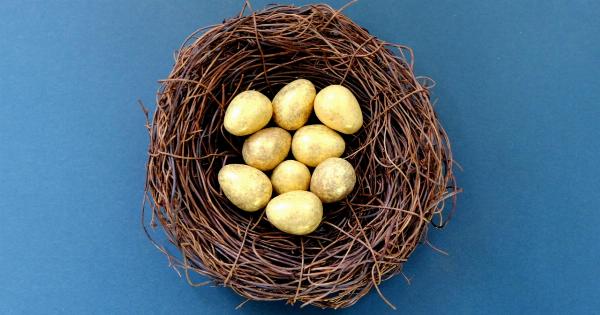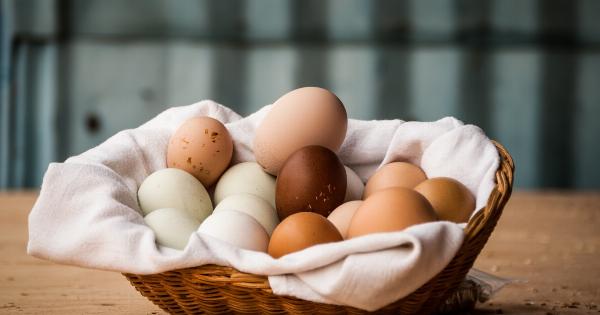Easter is a joyous time celebrated by millions of people around the world. While there are various customs associated with this holiday, one beloved tradition is the consumption of eggs.
Whether it’s decorating eggs, participating in Easter egg hunts, or simply enjoying a delicious egg-based meal, eggs play a significant role in Easter celebrations. However, a common dilemma that arises is how many eggs should one eat on Easter? In this article, we will delve into this egg dilemma and explore the factors to consider when deciding how many eggs to consume on this festive occasion.
The Significance of Eggs in Easter
Before we delve into the egg dilemma, it’s important to understand the significance of eggs in Easter traditions. Eggs have long been associated with fertility, rebirth, and new beginnings.
In many cultures, eggs symbolize the resurrection of Jesus Christ, making them a central element of Easter festivities. From a religious perspective, eggs are seen as a representation of new life and the triumph of good over evil.
Health Benefits of Eggs
Eggs are not only culturally significant but also offer several health benefits. Eggs are an excellent source of high-quality protein, vitamins, and minerals.
They are rich in essential amino acids that our bodies require for proper growth and development. Additionally, eggs contain vital nutrients like vitamin D, vitamin B12, selenium, and choline, which contribute to various aspects of our health.
Research has shown that consuming eggs can improve eye health, aid in weight management, and enhance brain function. The protein in eggs helps to keep you full for longer, making them a great food choice for weight management.
Furthermore, eggs are a good source of antioxidants that protect the eyes from age-related macular degeneration and cataracts.
Factors to Consider When Deciding How Many Eggs to Eat
While eggs have several health benefits, it’s important to consider a few factors when deciding how many eggs to eat on Easter.
1. Dietary Restrictions and Allergies
One of the foremost considerations is any dietary restrictions or allergies that you may have. If you are allergic to eggs or follow a vegan diet, consuming eggs may not be an option for you.
However, there are various egg alternatives available, such as tofu or vegan egg substitutes, that can still allow you to enjoy the essence of Easter without the eggs.
2. Nutritional Requirements
Another crucial factor is your nutritional requirements and goals. If you have specific dietary goals, such as weight loss or muscle gain, it’s essential to consider how eggs fit into your overall dietary plan.
While eggs are a nutrient-rich food, consuming them in moderation and alongside a balanced diet is crucial.
3. Cooking Methods and Recipes
The cooking methods and recipes you choose can also impact how many eggs you consume. For instance, if you prefer dishes that primarily use egg whites, you may end up eating more eggs compared to dishes that use whole eggs.
Understanding the cooking methods and recipes you enjoy can help you determine how many eggs you can incorporate into your Easter meal.
4. Sustainability and Sourcing
Eggs, like any other food, have an environmental impact. Therefore, it’s important to consider the sustainability and sourcing of the eggs you consume. Opting for organic, free-range, or locally sourced eggs can make a difference.
These eggs have often been produced in more ethical and environmentally friendly ways, ensuring your Easter celebration aligns with sustainability principles.
Indulging in Egg-based Easter Delicacies
Once you’ve considered the factors mentioned above, it’s time to indulge in some mouthwatering egg-based Easter delicacies. Here are a few popular recipes that you can try:.
1. Deviled Eggs
Deviled eggs are a classic Easter treat that is both delicious and easy to make. Simply hard boil a few eggs, slice them in half, and remove the yolks.
Mash the yolks with mayonnaise, mustard, salt, and pepper, and spoon the mixture back into the egg whites. Garnish with paprika or fresh herbs for an extra touch of flavor.
2. Quiche
A quiche is a versatile dish that can be enjoyed for breakfast, lunch, or dinner. You can create a quiche using a variety of vegetables, cheeses, and even meats. Whisk together eggs, milk or cream, and your preferred fillings.
Pour the mixture into a pie crust and bake until golden brown. Serve warm or at room temperature for a delectable Easter treat.
3. Egg Salad Sandwiches
Egg salad sandwiches are a classic delicacy that allows you to use up any leftover hard-boiled eggs. Roughly chop the hard-boiled eggs and mix them with mayonnaise, mustard, diced onions, salt, pepper, and your desired seasonings.
Serve the egg salad over slices of bread or rolls, and enjoy a flavorful Easter sandwich.
4. Chocolate Eggs and Treats
Easter is synonymous with chocolate eggs and treats. Whether it’s store-bought chocolate eggs or homemade delights, indulging in some sweet treats is an essential part of Easter celebrations.
From chocolate Easter bunnies to chocolate-covered eggs, the options are endless.
The Final Verdict – How Many Eggs to Eat on Easter?
Ultimately, there is no set number of eggs that one should eat on Easter. The quantity of eggs you consume depends on various factors, including your dietary needs, personal preferences, and the specific recipes you choose.
Some individuals may prefer to consume eggs in moderation, while others may fully embrace the egg-centric nature of Easter and enjoy multiple egg-based dishes throughout the day.
The most important aspect to consider is balance. Incorporating eggs into your Easter celebration can be a delicious and nutritious choice, but it’s crucial to ensure they are part of a well-rounded diet.
Pairing eggs with vegetables, whole grains, and lean proteins can create a wholesome Easter feast.
Conclusion
Easter is a time filled with joy, celebration, and, of course, eggs.
Whether you choose to enjoy eggs for their cultural significance, health benefits, or simply their delicious taste, there are plenty of ways to incorporate them into your Easter festivities. From traditional deviled eggs to modern quiches and egg salad sandwiches, the options are endless. Remember to consider your dietary needs, sustainability factors, and nutritional goals when deciding how many eggs to consume on this special occasion.
Happy egg-cracking and a joyful Easter!.






























